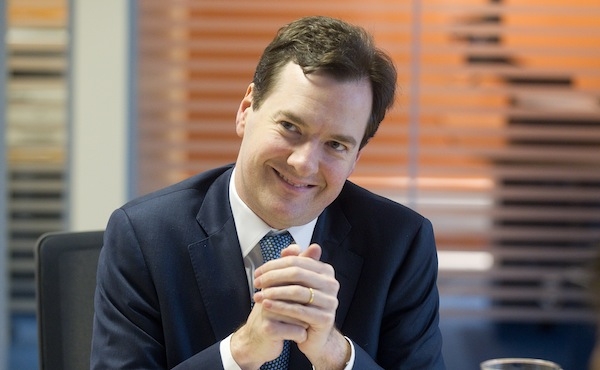George Osborne is well-known as the ‘submarine Chancellor’. But recently he’s been out and about a little bit more than we’re used to. He went on the attack this month on welfare, and today he made a rare appearance on Radio 4, and then gave a speech on Scotland and the pound. Ahead of today’s borrowing figures – which show he’s just about squeaked home on his claim that the deficit is coming down every year of this Parliament – he told John Humphrys that the economy was recovering, and discounted the views of the IMF’s chief economist Olivier Blanchard, saying:
‘That is one voice, one person. The chief economist has a well-known set of views on this, which he has expressed in various forms over several years. The IMF will do its analysis of the British economy, as it does all economies – it’s coming to Britain in May to do that.’
One of the problems for Osborne at the moment is that there are many voices circulating with their own opinions and analysis about whether things are or aren’t working. There’s Blanchard, who says the Chancellor should consider slowing the pace of deficit reduction, the credit ratings agencies who say he has fallen too far behind on deficit reduction, University of Massachusets academics who’ve tried to dismiss the Reinhart/Rogoff analysis that growth is seriously affected when a country’s debt reaches over 90 per cent of GDP, and the Archbishop of Canterbury who says the country is in a ‘depression’ which could be solved by ‘a revolution in the aims of banks’. Interestingly, while insisting that the IMF’s jury is really still out, Osborne chose to side with Justin Welby, telling Humphrys that ‘of course we are recovering as indeed the Archbishop of Canterbury has reminded us this morning, from a very deep banking crisis’.
The Chancellor and his colleagues know that they are in the middle of the toughest point of the coalition. Osborne believes that things will start to improve after the summer. But it’s clear that the strategy is to get through the next few months on the attack rather than, as the Tory leadership and Downing Street machine had grown accustomed to over the past year, defending only once the going was tough.







Comments